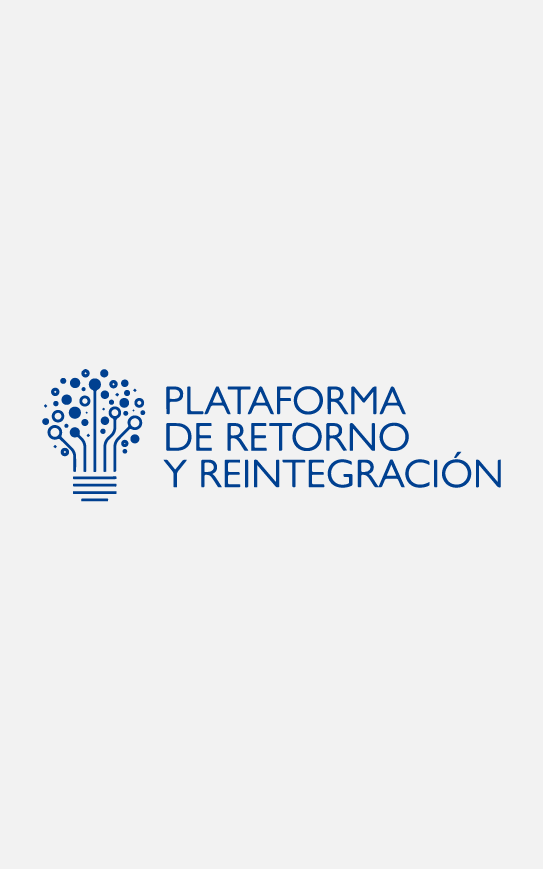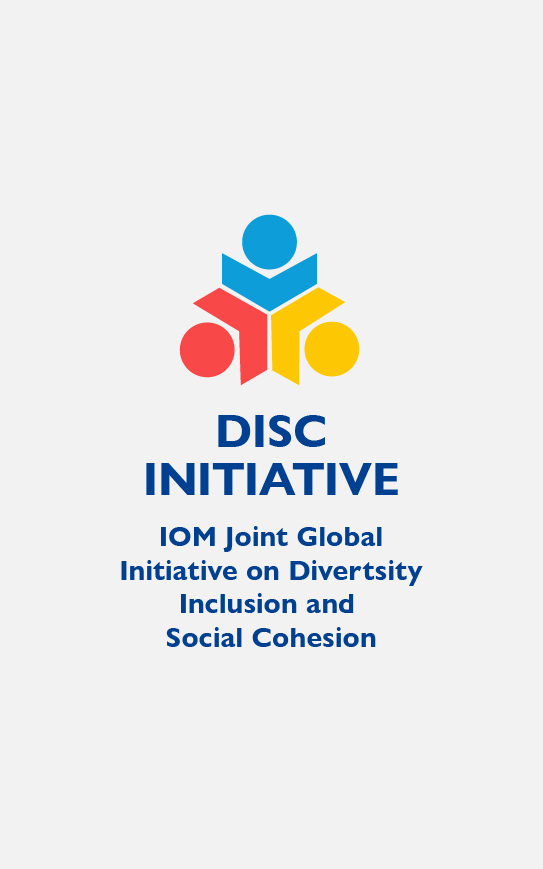Below users will find a list of platforms of interest that can be accessed You can access the clicking the right mouse button and selecting “open link”. These have been implemented by IOM and other stakeholders and are useful for identifying good (re)integration practices. Most of the material compiled in this toolkit can be found on these platforms and, taking the latter into account, will help delve deeper into the many studies and materials shared on integration and reintegration. Furthermore, they are an opportunity to disseminate good practices identified in each country and learn from others.
 Innovamigración
InnovamigraciónThis is a platform that includes innovative initiatives, projects, campaigns and workshops and seeks to bring about an exchange of information on migration challenges and opportunities in the region. Its purpose is to contribute to building collective knowledge through analysis and research.
It contains good practices and experiences in migration management within the Comunidad de Conocimiento (Knowledge Community)
 Destino Integración
Destino IntegraciónThe above is a platform integrated into Innova[Migra]ción, in which migrants or returning migrants can access different materials and resources to start and continue with the socio-economic integration process. Among other resources, a toolkit is offered to help set up and consolidate a business.
 Return and Reintegration Platform
Return and Reintegration PlatformThis is a public tool available online, which seeks to facilitate cooperation and knowledge sharing among different stakeholders and inter-regionally. The platform offers hundreds of resources and tools in several areas related to migration protection, including return and reintegration. It is designed to organize and promote online dialogue, bringing together voices from different time zones and geographies, thus fostering exchanges between professional communities and enhancing local good practices.
 The Joint Global Initiative on Diversity, Inclusion and Social Cohesion
The Joint Global Initiative on Diversity, Inclusion and Social CohesionThis is an initiative that seeks to improve IOM's capacity and programmes to support Member States and partners in migrant integration, inclusion, and social cohesion. It also serves as a platform to share, learn, develop and implement innovative strategies and interventions that make the most of the resources of communities and migrants.
 Ciudades Incluyentes
Ciudades IncluyentesThis is an initiative developed with the support of the European Union in partnership with the United Nations High Commissioner for Refugees (UNHCR), the International Organization for Migration (IOM) and the United Nations Human Settlements Programme (UN-Habitat). The project seeks to implement innovative actions from a care and protection of refugee and migrant perspective, promoting inclusive urban and territorial development.
 Suramérica Abierta
Suramérica AbiertaThe purpose of the platform is to ensure that migrants and other key stakeholders in the region have access to relevant, updated and reliable information on the different measures taken by governments vis-à-vis human mobility, including information on border restrictions, quarantine requirements, COVID-19 tests and other matters of interest to migrants and travelers in South America.
 Migracidades
MigracidadesThis is a platform that aims at training local stakeholders, promoting dialogue on migration issues, certifying the commitment of governments to improve migration governance, and providing visibility to good practices identified in Brazilian states and municipalities. It includes several publications that allow the monitoring of these certification processes, as well as support material on the governance of local migration.
 Migraciudades
MigraciudadesThis is a project developed and implemented by IOM with the support of the Argentine Migrations Directorate to help improve and strengthen the capacities of local governments in migration governance. It includes an analysis of local migration governance capacities, training for civil servants, prioritization of public policies, and design of action plans with their pertinent monitoring mechanisms.

